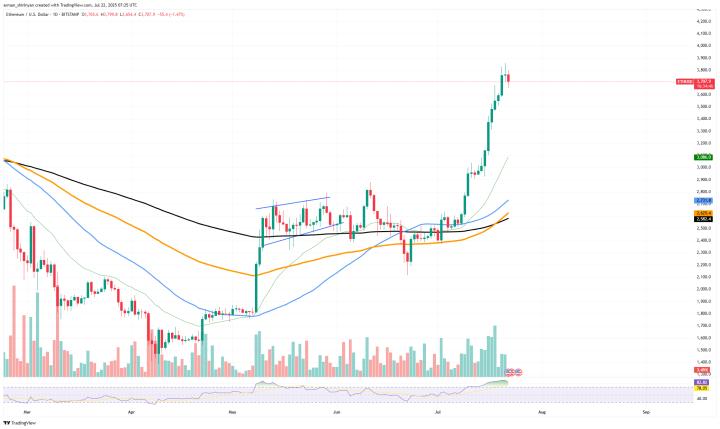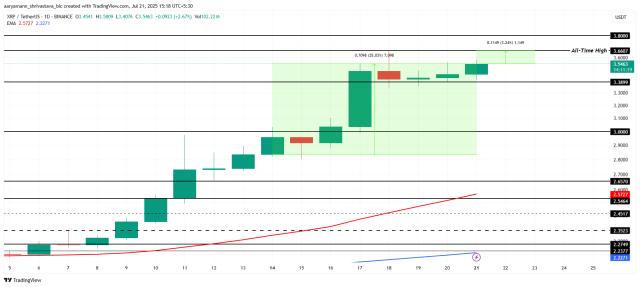In the context of consumption downgrade, tourism is no longer just an escape from life, but a new scenario for asset allocation. While traditional OTA platforms are still competing on price, service, and brand awareness, a new platform driven by Web3 is quietly rising - Coinsidings is merging "accommodation consumption" with "shareholder equity", allowing each hotel to be not only booked but also owned.
I. From Staying One Night to Owning a Brick: RWA Makes Hospitality Real Estate Tokenization Possible
In recent years, "RWA" (Real World Asset) has become one of the hottest trends in the blockchain field. From US Treasury bonds, gold, and stocks to real estate, more and more offline assets are being "digitized, fragmented, and made tradable". This not only builds a connection bridge between crypto assets and the real economy but also provides global investors with low-threshold, cross-regional income channels.
In the tourism industry, the most representative RWA carrier is - hotels and homestay properties. These assets, which originally required high capital investment, complex management, and were geographically limited, can now complete "equity on-chain" on the Coinsidings platform through Non-Fungible Token and smart contract technology, achieving investment fragmentation, transparent returns, and flexible exit.
For example, a sea-view homestay in Bali can have its equity minted into limited-edition Non-Fungible Token certificates. Users don't need to buy an entire house; they can subscribe to a property fragment and proportionally enjoy platform property dividend rights, usage rights, and appreciation return rights. This not only breaks down traditional real estate investment barriers but also provides a new liquidity solution for tourism assets.
II. Asset or Platform? Coinsidings Offers a Dual Ownership Path
Coinsidings not only empowers hotel assets through RWA but also builds a "platform + property" dual-income structure. In traditional tourism platforms, users are merely service recipients; but on Coinsidings, users can become platform "quasi-shareholders".
The platform token CSS is a "consumption as investment" option token, representing the future release rights of platform revenue. Users earn corresponding CSS options with each booking, invitation, and consumption behavior. The CSS token features periodic release, dividend pool participation, and stakeable appreciation, essentially providing users with a "future dividend binding" mechanism.
Unlike one-time consumption, Coinsidings creates a dynamic equity growth system: users continuously accumulate options through membership purchases, consumption, sharing recommendations, thereby binding to the platform's growth trajectory. The more active the platform, the more frequent the transactions, and the richer the property assets, the stronger the CSS dividend capability and value support.
This means you not only own "a brick of a hotel" but also a share of the platform's future profit distribution.
III. From Guest to Shareholder: The Asset Transformation of Consumption Behavior
The true underlying logic of Coinsidings' ecosystem is transforming each user's consumption action into an asset income entry. This economic model that reverses "expenditure" into "ownership" is subverting traditional tourism consumption perceptions.
On traditional platforms, user value is expressed as a single booking or order. But in the Coinsidings ecosystem, each action is redefined:
• Booking is participating in RWA asset co-construction;
• Consumption brings CSS option release and future income rights;
• Invitation transforms into long-term profit sharing and computing power points;
• Content production incentivizes becoming an AI recommendation priority or Non-Fungible Token rights recipient;
• Membership upgrade not only unlocks platform functions but also binds multiple long-term dividend pools.
In this ecosystem, "staying once" brings not just experience, but asset precipitation and activation.
For instance, a guide recommending a homestay on Coinsidings and helping a tourist register as a member. After the tourist completes consumption, the guide receives consumption commission, CSS dividend proportion, and computing power points. The tourist also gains points exchangeable for accommodation services and long-term released options by using the platform service. This dual-binding and equity circulation design directly elevates users from "guests" to platform "chain shareholders".
IV. Bringing RWA to the Masses: Fragmentation + Multiple Entries Lowering Investment Barriers
Many people are intimidated by "real estate investment" simply because of high capital barriers, long cycles, and difficult liquidity. But on the Coinsidings platform, through Non-Fungible Token fragmentation mechanisms, each property can be proportionally split into thousands of digital tokens, with users participating for just tens of dollars.
More importantly, these Non-Fungible Tokens not only provide holding income but also embed platform incentive mechanisms. For example, some property Non-Fungible Token holders enjoy periodic booking discounts, VIP route priority booking, scenic pass airdrops, community governance proposal rights, greatly expanding the boundaries of "investment" and "rights".
Additionally, Coinsidings' RWA investment mechanism combines DeFi elements like liquidity support pools, option markets, property rental income staking models, allowing user holdings to not only "stay and earn dividends" but also participate in creating chain-based financial derivative values. This DeFi+RWA structure increases asset liquidity and brings income potential.
V. The Future "Airbnb + BlackRock"? Coinsidings is Building the Next-Generation Travel Asset Entry
Coinsidings is not just a tourism platform, but a Web3 tourism asset infrastructure reconstructing industries from a global perspective.
At the macro level, it connects globally fragmented homestays, hotels, and cultural tourism assets through tourism real estate RWA structural design, standardizing and confirming rights via Non-Fungible Tokens, enabling cross-border circulation, chain governance, and income distribution.
At the micro level, through membership systems, CSS option systems, task reward mechanisms, AI recommendation systems, and other modules, it activates each user's participation motivation, making "booking, recommending, investing" a closed-loop behavior that continuously deposits traffic and asset value.
With Coinsidings' 2.0 ecosystem version, its global route map, Web3 AI guide system, membership rights upgrade system, multi-currency payment system, Non-Fungible Token route packages, and targeted property booking functions are gradually being implemented. This marks the platform's evolution from a single platform tool to a **"chain-based asset internet infrastructure"**.
Just as "Airbnb lets you become a landlord" and "BlackRock lets you participate in global asset management", Coinsidings aims to let users "afford to stay and afford to buy", becoming "tourism shareholders" in the digital world.
Conclusion: Choose a Room, Choose Income Rights - Coinsidings Makes the Future Livable, Ownable, and Participatory
More and more people are asking: Have they missed the era of buying houses? Are investment thresholds too high? But Coinsidings' solution is: "Staying" and "Buying" are no longer either-or, but a new combination of "consumption + ownership + dividends".
This is the breakthrough of true integration between the tourism industry and blockchain assets, and a prime example of RWA trends landing on the user end. Future houses may not belong to real estate developers but to countless "partners" like you and me who have stayed, recommended, and owned on the platform.
On Coinsidings, each of your journeys might be the starting point of an asset.








